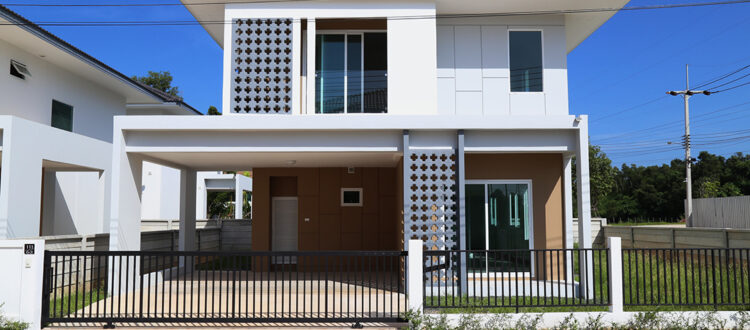Substantial Completion vs Practical Completion: What’s the Difference?
In the world of construction, legal terminology can often cause confusion — especially when dealing with contract milestones. Two terms that are frequently misunderstood are Substantial Completion and Practical Completion. For clients, developers, and even contractors, understanding the distinction is essential for project delivery, payment timelines, and legal responsibility.
At Sotech Asia, a leading construction company in Phuket, we believe in educating our clients to ensure transparency and better collaboration. Whether you’re a developer building a resort in Patong or a homeowner constructing your dream villa in Rawai, understanding these construction milestones will empower you to manage expectations and timelines.
What is Substantial Completion?
Substantial Completion is a term most commonly used in American and international construction contracts. It refers to the stage in a project when the work is sufficiently complete, in accordance with the contract documents, so that the owner can occupy or use the building for its intended purpose.
Key Characteristics of Substantial Completion:
- Usability: The project is operational and safe for use, even if minor works like finishing touches, defect rectifications, or final inspections remain.
- Responsibility Shifts: The contractor’s responsibility for security, insurance, and risk typically reduces or ends at this stage.
- Trigger for Final Payments: Substantial Completion often marks the beginning of the warranty period and triggers the release of a large portion of the contract sum, minus any retention.
- Defined in Contract: It’s essential that the contract explicitly defines what Substantial Completion looks like for a specific project. If not, disputes can arise.
In jurisdictions like the United States, Substantial Completion is often verified by an architect or third-party consultant, who issues a certificate of substantial completion.
What is Practical Completion?
Practical Completion is a term more commonly used in British Commonwealth countries, including Thailand, Australia, the UK, and South Africa. Although similar to Substantial Completion, Practical Completion is recognized in different legal systems and often has slightly different implications.
Key Characteristics of Practical Completion:
- Project Ready for Handover: The works are complete except for minor defects that do not prevent the building from being used as intended.
- Final Inspection: A contract administrator, architect, or engineer will carry out a detailed inspection and issue a Certificate of Practical Completion once satisfied.
- Start of Defects Liability Period: Once Practical Completion is certified, the Defects Liability Period (DLP) begins, during which the contractor is required to fix any faults or deficiencies.
- End of Contractor’s On-Site Role: Although minor issues may remain, the contractor’s major on-site responsibilities end here.
In Thailand, Practical Completion is widely accepted as the legal benchmark for determining when a construction project is finished, especially for regulatory and handover purposes.
Comparing Substantial Completion vs Practical Completion
While both terms are often used interchangeably, they are not the same — especially in the legal context. Here’s a detailed comparison:
| Feature | Substantial Completion | Practical Completion |
|---|---|---|
| Region of Usage | Primarily US and international contracts | British Commonwealth, including Thailand |
| Legal Implication | Defines when the owner can use the property | Marks legal handover and start of DLP |
| Certification | Architect/Engineer issues Certificate of Substantial Completion | Contract administrator issues Practical Completion certificate |
| Project Status | Usable but not entirely complete | All works done except minor defects |
| Payment Trigger | Final major payment minus retention | Triggers final account settlement |
| Warranty Start | Often starts here | Defects Liability Period begins |
| Risk Transfer | Shifts to owner | Shifts to owner |
Why Understanding These Terms Matters
As a professional contractor in Phuket, Sotech Asia has worked on a wide variety of residential and commercial projects. We’ve seen that confusion over these terms can lead to disputes, delayed payments, and unmet expectations. Here’s why clarity is important:
1. Payment Milestones
Understanding whether a project is at Substantial or Practical Completion can determine whether you’re due for a major payment or if final adjustments are pending. For example, a client might believe that completion means all defects are fixed, while a contractor may think usability is the threshold.
2. Risk and Liability
At Substantial Completion, the risk (such as fire, theft, or damage) typically transfers from the contractor to the owner. Knowing when this change happens protects both parties legally.
3. Scheduling and Delays
Some contracts include penalty clauses for late completion. If Practical Completion is not clearly defined, determining whether the contractor is liable for delays can become contentious.
4. Defects Liability Period
This period is critical in construction. Understanding when it begins — usually at Practical Completion — ensures that both parties can plan for post-completion repairs and maintenance.
How Sotech Asia Handles Completion Stages
As a reputable construction company in Phuket, Sotech Asia takes a transparent and legally sound approach to project milestones. Here’s how we manage the transition between construction stages:
Clear Contract Definitions
We clearly define Substantial and Practical Completion in our contracts based on the nature of the project and the client’s preference. For local residential projects, we typically follow Practical Completion guidelines aligned with Thai construction laws.
Third-Party Certification
We engage licensed engineers and project managers to conduct rigorous inspections before certifying either milestone. This gives both the client and our team clarity and peace of mind.
Transparent Communication
We walk our clients through every step — from preliminary completion checks to formal handover — ensuring no surprises or misunderstandings.
Post-Handover Support
Once Practical Completion is achieved, we remain engaged during the Defects Liability Period to handle any issues promptly. This is part of our commitment as a responsible contractor in Phuket.
Real-Life Scenario: A Phuket Villa Project
Let’s say Sotech Asia is building a luxury villa project in Layan for an international client. Here’s how Substantial and Practical Completion would typically play out:
- Substantial Completion is reached when the villa is safe, has running water, electricity, and is habitable — but perhaps the landscaping isn’t done, or some light fixtures are missing.
- Practical Completion is reached once all building elements, finishes, and external works are complete, and a formal inspection confirms no major outstanding work.
This distinction allows the client to move in earlier if needed, but ensures the full value is only considered delivered once all agreed-upon work is finalized.
Tips for Developers and Property Owners
If you’re planning to build in Phuket, here are some practical tips to manage completion stages:
- Use Clear Contract Language: Whether you choose Substantial or Practical Completion as a benchmark, define it precisely.
- Document Everything: Keep detailed records of inspections, certifications, and communication.
- Hire Reputable Contractors: Work with experienced teams like Sotech Asia, who understand both local laws and international construction standards.
- Understand Your Rights: Know when you’re entitled to occupy, request defect rectifications, or withhold payments.
Conclusion
While Substantial Completion and Practical Completion may seem similar, the legal and practical differences are significant. For any construction project in Thailand — especially in Phuket — these milestones affect everything from payment schedules to liability periods.
As a trusted construction company in Phuket, Sotech Asia takes pride in guiding our clients through these complex processes with clarity and professionalism. Whether you’re building a home, resort, or commercial space, we’re here to ensure your project is delivered smoothly, legally, and to the highest standard.
If you’re looking for an experienced, detail-oriented contractor in Phuket, contact Sotech Asia today. Let’s build something great together — with confidence and clarity every step of the way.
Ready to start your construction project in Phuket?
Contact Sotech Asia, your reliable construction partner on the island. We combine international standards with local expertise for exceptional results.











